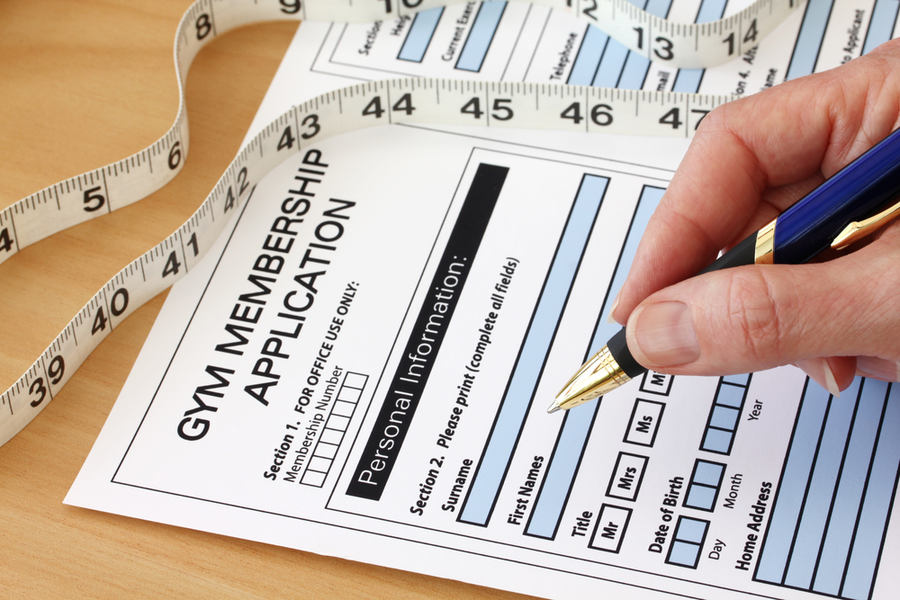
When you sign up for a gym membership, you’re trusting that the place you train will be safe, well-maintained, and professionally run. And most of the time, it is. But accidents, injuries, and disputes do happen—often in ways that leave gym members unsure of their rights.
Whether it’s a faulty machine, bad advice from a trainer, or missing belongings from a locker, it’s worth knowing exactly what your gym is and isn’t responsible for under UK law.
Here’s what every member should understand before stepping into the weight room.
Your Gym’s Duty of Care: What They Must Provide
All gyms in the UK have a legal “duty of care” to provide a safe environment for members, staff, and visitors. This doesn’t mean accidents can’t happen, but it does mean they’re responsible for taking reasonable steps to reduce risk.
Here’s what that includes in practice:
- Properly maintaining equipment – If a cable snaps, a bench collapses, or a treadmill malfunctions because the gym failed to service it, they could be held liable.
- Clear signage and warnings – Wet floors, out-of-order machines, or construction areas must be clearly marked.
- Clean, hazard-free facilities – Slippery tiles, broken mirrors, exposed wires, or cluttered walkways are all potential liabilities if left unaddressed.
- Trained staff – In most gyms, there should be someone on-site trained in basic first aid and emergency response procedures.
This duty is shaped by the Occupiers’ Liability Act 1957, which requires anyone in control of a premises (like a gym operator) to take care in preventing foreseeable harm. The Health and Safety at Work Act 1974 also applies, particularly if the gym employs staff or runs classes.
Injured at the Gym? When You Can and Can’t Claim
 If you’re hurt while training, it’s not always clear who—if anyone—is to blame. Here’s a simple breakdown of where liability usually falls.
If you’re hurt while training, it’s not always clear who—if anyone—is to blame. Here’s a simple breakdown of where liability usually falls.
You might have a valid claim if:
- The injury was caused by faulty or poorly maintained equipment
- Staff failed to act on a known hazard (e.g. a repeated leak that caused a slip)
- You were given incorrect advice or instructions by an employee
- You weren’t warned about a known risk (e.g. broken step in the studio)
You likely won’t have a claim if:
- You misused equipment, ignored instructions, or pushed yourself beyond your ability
- You got injured due to poor form or overtraining in your own unsupervised session
- The risk was clearly signed or unavoidable (e.g. a controlled environment like a sauna or ice bath)
In short, the gym’s liability comes down to negligence. If they failed to meet basic safety standards and that caused your injury, they could be responsible. But if the risk was yours to manage—as it often is in voluntary physical activity—it’s unlikely you’ll have grounds for a claim.
Are Personal Trainers Liable for Bad Advice?
When it comes to personal trainers, the lines can blur. Many PTs are self-employed but work within a gym setting. Some are directly employed by the gym. This affects who is liable if something goes wrong.
- If a gym-employed trainer gives you poor advice or pushes you into unsafe training, the gym may be liable as their employer.
- If a freelance trainer you hired separately makes a mistake that leads to injury, they are personally liable—and should have public liability insurance to cover it.
Unfortunately, not every PT operating in UK gyms is fully qualified or insured. Before hiring one, ask to see:
- Proof of certification (ideally Level 3 in Personal Training, with CPD updates)
- Public liability insurance
- First aid certification
If your PT gives you advice that causes injury—whether it’s encouraging unsafe lifts, failing to correct form, or providing an unsuitable programme—you may be able to claim against them or the gym, depending on the employment structure.
Lost Property
Most gyms have lockers, cubbies, or shelving areas—but that doesn’t mean they’re liable for anything you lose or have stolen.
In general:
- Gyms aren’t liable for lost or stolen personal items—especially if you didn’t use a locker or left items unsecured.
- If a theft happens due to clear negligence (e.g. broken lockers the gym failed to fix), you may have a case.
- Most gyms will have signs or clauses in your membership contract that disclaim liability, and these are generally enforceable under UK law.
To protect yourself:
- Always use a secure locker with a decent padlock
- Don’t bring unnecessary valuables (watches, wallets, laptops)
- Check your home or travel insurance—some policies cover theft from gyms
CCTV, Complaints, and Contracts

Most gyms now use CCTV in areas like entrances, weights rooms, and corridors—but not in changing rooms or toilets. Under the UK GDPR and Data Protection Act 2018, your gym must:
- Inform you that CCTV is in operation (usually via signage)
- Handle footage responsibly
- Comply with subject access requests if you ask to view footage involving you (e.g. in the event of a dispute or theft)
When it comes to complaints, if you’re injured, feel unsafe, or have an issue with staff or another member, always:
- Report it immediately to a manager or staff member
- Follow up in writing with dates, names, and details
- Keep a record of your communication in case it escalates
Finally, we come onto contracts. Your gym contract should outline:
- Cancellation policies (cooling-off periods, notice required)
- Freeze options (e.g. for injury or travel)
- Refund rights (for unused or prepaid time)
Under the Consumer Rights Act 2015, gyms must deliver services with “reasonable care and skill”. If they shut unexpectedly, fail to provide what you paid for, or change services significantly without notice, you may be entitled to a refund or cancellation without penalty.
Tips to Protect Yourself as a Member
Obviously, I’m not suggesting you snoop about with a magnifying glass taking notes, but if you happen to notice something then feed back to the gym, and always read the paperwork.
- Inspect equipment before use—look for frayed cables, wobbly parts, or obvious wear
- Report hazards (spills, broken machines) as soon as you spot them
- Use lockers every time—even for cheap items
- Keep proof of communication with PTs or staff, especially if you’re following a tailored programme
- Read your contract before signing—don’t rely on verbal assurances
- Take photos of injuries, conditions, or broken kit if something does go wrong
Gyms have clear responsibilities when it comes to keeping you safe—but so do you. Knowing where the legal lines are drawn helps you train with confidence, hold others accountable when needed, and avoid surprises if things go wrong.
If you’re ever unsure, don’t ignore that instinct. Speak to staff, check your rights, and remember: your health, safety, and wellbeing are worth protecting—on both sides of the membership card.
